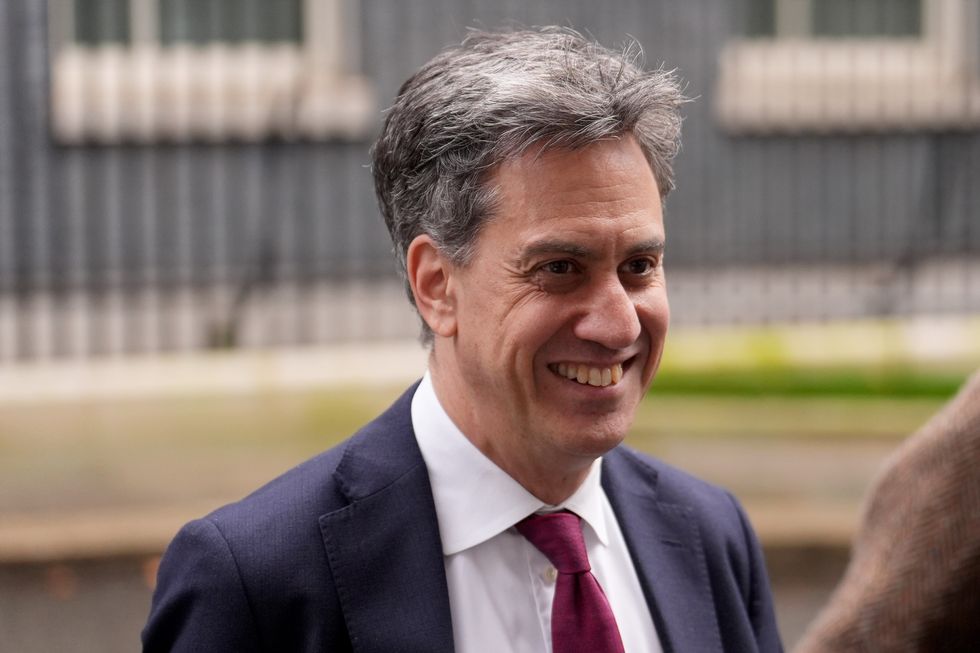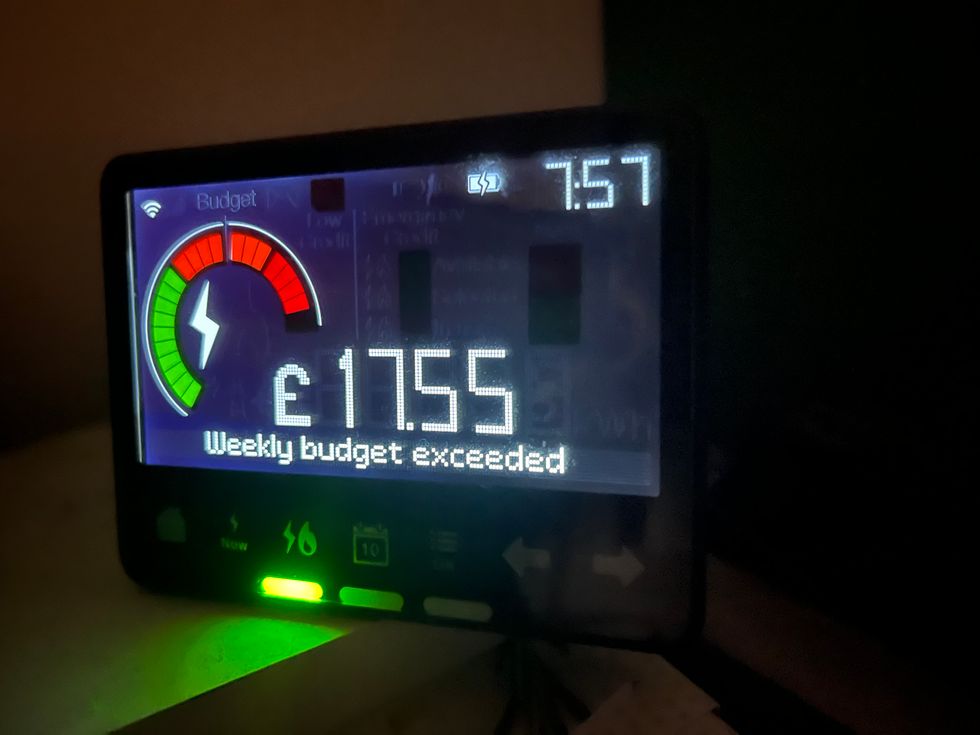Net Zero to blame for surging electricity bills as prices increase by 50% in just 10 years, new analysis shows
Most of Britain’s skyrocketing electricity bills are being blamed on subsidies for renewables and Net Zero policies, new analysis shows has shown.
Since 2015, the electricity price cap – a limit on how much energy suppliers can charge for power – has jumped from £664 to £994 per year in today’s prices – an increase of £330, or 50 per cent over a decade.
Despite the government pointing the finger at rising gas prices on the global market, the exclusive analysis for GB News by Professor Gordon Hughes, an economist at Edinburgh University, shows the biggest culprit is the explosion in subsidies for renewable energy and Net Zero policies which account for forty per cent of the increase in our electricity bills since 2015. These costs now represent £223 of our annual charges.
This includes subsidies to solar and wind companies and fees to pay for backup systems – either gas or nuclear – to compensate for the fact that wind and sun are erratic.

Professor Hughes, former senior energy advisor to the World Bank, says the other costs making up our bills – wholesale electricity prices, network costs, and supplier costs – contributed to far less – a total of 20 percent – of the overall increase.
Last night the government refuted the claims which it said are based on an, “inaccurate reading of spurious methodology.” And they blamed the high energy bills on rising gas bills due to “volatile gas markets.”
However Professor Hughes blamed much of the increase in the price of electricity on costs incurred as a consequence of the government’s Clean Power 2030 Action Plan which aims to ensure at least 95 percent of the country’s electricity comes from clean sources.
He said: “The current government claims that the increase in electricity bills is due to reliance on gas generation and exposure to European gas prices. That is simply wrong.
“The largest contribution to the increase in inflation-adjusted bills over the decade is due to the increase in renewable subsidies and other policy costs.”
He added: “Wholesale electricity costs are outside the government’s influence. That is not the case for renewable subsidies and policy costs. Those are the consequences of decisions made by this government and previous governments.
“The goal of promoting low-carbon generation may be worthy but the government should acknowledge and own the costs of pursuing that goal, which are high. If the past is any guide, those costs will increase – probably by a lot – in future.
“Commitments already made that renewable subsidies and other policy costs are set to increase in the next 1-2 years. As a consequence, their share of electricity bills is likely to continue to increase.”
Professor Hughes also highlighted British households are now paying far more for energy than many other major economies.
“In the UK, we pay nearly 2.5 times more than in the US MidWest and almost five times the price of electricity in China,” he said.
Chief Executive of Net Zero watch – an organisation which aims to highlight the implications of Net Zero policies – Andrew Montford said: “The government’s claim that Net Zero will ultimately lead to lower bills is based on assumptions that do not hold up under scrutiny.
“Even as renewables account for an increasing share of the energy mix, prices continue to rise. Meanwhile, industries are struggling, and British households are being pushed to the financial brink.”
LATEST DEVELOPMENTS:
- Economy update: Net zero ‘essential to GDP growth’ as UK boosted by £83bn thanks to ‘clean energy’
- ‘Economically illiterate!’ Ed Miliband sparks blistering net zero row amid energy price hike: ‘He’s deluded!’
- Britons face net zero ‘flight tax’ on summer holidays in ‘forced’ lifestyle changes ahead of carbon budget

A spokesperson for the Department for Energy Security and Net Zero said: “These claims are simply false, based on inaccurate reading of spurious methodology.
“The reality is that every family and business has paid the price of rising energy bills, which are a direct result of Britain’s vulnerability to volatile global gas markets.
“By failing to invest at scale over many years in the clean, secure, homegrown power our country needs, we have been left exposed to the consequences of events beyond our borders.
“The only way to bring down bills for good is by making Britain a clean energy superpower, which will give us energy security, protect consumers, create jobs and tackle the climate crisis.”
What is behind the ‘Net Zero’ costs?
Because renewables can’t provide power 24/7, the UK needs to rely on expensive backup systems to ‘balance’ the grid – including gas and nuclear – to keep the lights on.
A separate report exclusively for GB News by energy consultant Kathryn Porter shows Britons are now forking out £1billion per year to pay for backup electricity when wind and solar fail.
This is predicted to rise to £4.1bn by 2029/30, the report shows.
“The cost of balancing the grid has already doubled to £2.5bn since 2010,” said Porter.
“This is because electricity supply must always match demand. But with wind and solar constantly fluctuating, the cost of keeping the system stable has been skyrocketing.”
And when wind farms produce too much electricity for the grid to handle, they get paid to switch off, costing taxpayers £1bn last year.
But according to the National Energy System Operator (NESO), this could soar to £9bn by 2030.
Network costs – the fees paid to maintain and run the grid – have also increased because connecting wind and solar farms to the grid is far more expensive than traditional power plants.
According to Porter’s report these have risen by £106 per household since the energy price cap was introduced in 2019.
“An 800 megawatt gas plant needs just one grid connection,” Porter said, “but an 800 megawatt wind farm requires over 65 separate turbines to be connected.”

Another cost is subsidies for renewable energy sources. In 2023/24 alone, British households and industries paid £9.5bn in renewables subsidies – and the Office of Budget Responsibility which analyses public finances – says this will rise to £9.9bn by the end of the decade.
Porter said wind farms are also less efficient, adding to the costs: “Wind farms only produce energy 35 percent of the time.
“That means we’re spending nearly £10bn a year on energy that doesn’t even work two-thirds of the time.“
“The idea that wind and solar are making our bills cheaper is a fantasy,” she added.
Her report shows that when the energy price cap was first introduced in 2019, wholesale gas accounted for 39 per cent of household bills.
This spiked to 73 percent during the 2022 crisis, but now, gas only makes up 43 percent of bills – which is just 4 percent higher than before the crisis.
She said: “The truth is, gas prices have been stable for most of the past three decades – except for 2022-23, when the war in Ukraine caused a temporary spike. But even during long periods of cheap gas, bills kept rising. This is because of the cost of renewables subsidies, grid balancing, and green policies.”
According to her report households have spent over £90bn more on electricity since 2006 than they should have because of the push for renewables.
She said: “We would all be financially better off without the transition to renewables. It is simply incorrect to blame high bills on gas prices. High bills are because of the cost of the energy transition.”
Energy secretary, Ed Miliband, said a recent interview: “Net zero is essential to growth, a strong economy and money in working people’s pockets.
“Our mission to make Britain a clean energy superpower is the route to energy security, good jobs and investment in our communities.”
The UK Government said it has committed to reaching net zero by 2050. This means that the total greenhouse gas emissions would be equal to the emissions removed from the atmosphere, with the aim of limiting global warming and climate change.

